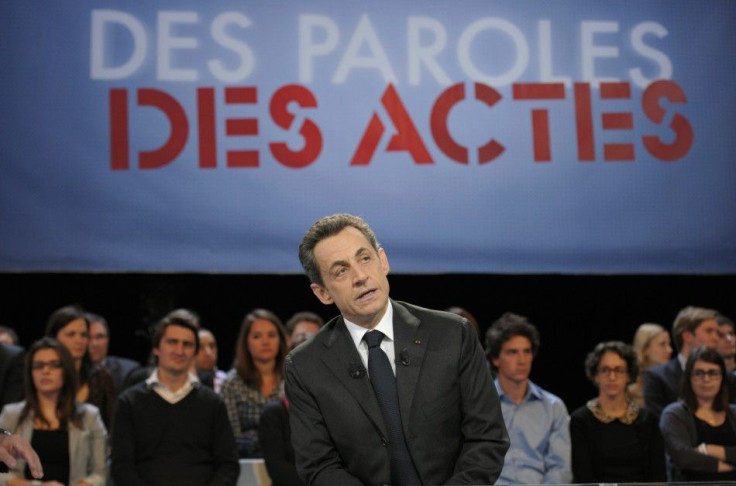Lagging Sarkozy Vows To Quit French Politics If He Loses Election

French President Nicolas Sarkozy said Thursday he would quit politics if he loses the upcoming April-May presidential elections.
Sarkozy is lagging behind his rival Francois Hollande after the Socialist candidate widened his lead this week advancing 2 points to 30 percent support for the April 22 election first round.
I worry when I look at the Socialist candidate's program ... and I worry about this dearth of experience in such a troubled period. But if the French people do not put their faith in me, do you really think I would carry on in politics? The answer is no, Sarkozy told RMC radio, Reuters reported.
I will fight with all my strength to win your confidence, to protect and lead you and build a strong France, but if that is not your choice I will bow out, that's the way it is, and I will have had a great life in politics.
The latest poll by analysts CSA, saw Hollande beating Sarkozy by 56 percent to 44 percent in a May 6 runoff, France 24 reported.
The French Ppremier said during a three-hour televised debate this week that one of his abiding qualities was is that he never gives up.
The Sarkozy campaign began in mid-February, several weeks after Hollande launched his bid for the presidency.
Sarkozy has adopted a strategy of unveiling his ideas week by week, so far announcing a new minimum tax on company profits, compulsory training programs for the unemployed and policy referendums.
The French President took a controversial stance on immigration earlier this week, announcing France had too many foreigners.
We have too many strangers on our territory. We are unable to accommodate them with a job, schooling, or housing. Our system risks becoming paralyzed, turning into a ghetto, he said during the France 2 television interview.
He added that to jump-start the integration system, France should halve the number of immigrant entries from 180,000 to about 100,000 entries per year.
© Copyright IBTimes 2024. All rights reserved.











